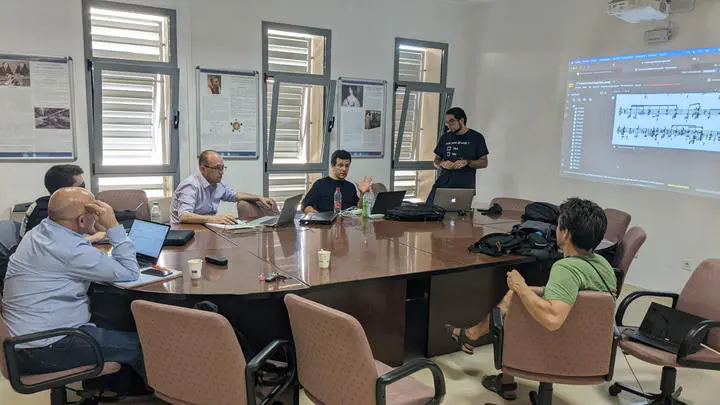Deep Learning Music Generation

Abstract
Recent advances in deep learning have led to the definition of new neural networks (models) specially designed to process ordered data sequences: RNN (Recurrent Neural Networks), LSTM (Long-Short Term Memory, i.e. an enhanced RNN) and Transformers, whose performance proved impressive for the generation of content or patterns including music, text, audio, images and even source code. In addition, new music datasets are available and play a key role in training. In that sense, projects such as Magenta (Google) provide open source software tools for use in content generation. Therefore, the technology ecosystem for generating, for example, AI-based music is reaching a level of maturity suitable for thinking about new business models. A clear example of that maturity is Apple’s recent acquisition of the startup AI Music, which uses Artificial Intelligence to generate personalized soundtracks and adaptive music. In this course, we will review in a theoretical and practical way these fundamental neural networks for the generation of content or patterns that can be created as humans would, introducing the most current tools and discussing the challenges that still lie ahead.
On November 3 and 4, as part of the Ph.D. Program in Computer Science at the University of Almeria, Roberto Rodríguez Echeverría, University of Extremadura, taught the course Generation of content and/or recognizable patterns using neural networks, with the participation of Jorge Periánez Pascual, MetrikaMedia.
For some time now, relying on artificial intelligence to help us in our daily work has ceased to be a dream and has become a reality. Every day we use machine learning models to suggest the next words we will type on our cell phones, to give just one example. What we would never have imagined is that this artificial intelligence would help us to create creative content such as code for our programs, images following textual descriptions, or, as we explained in this seminar, music", commented UEx professor Roberto Rodríguez Echeverría.
The content of the seminar was as follows:
- Introduction to Deep Learning
- Recurrent Networks and Transformers
- Content Generation
- Image Generation with Variational Autoencoders
- Music Generation with LSTM and Transformers
This and other seminars are the results of the collaboration between the company and the University. From i3lab, one of the working groups of Quercus Software Engineering Group, we are committed to the training of new engineers in areas such as artificial intelligence and everything related to it, such as MLOps. Interested? Contact us and let’s talk.